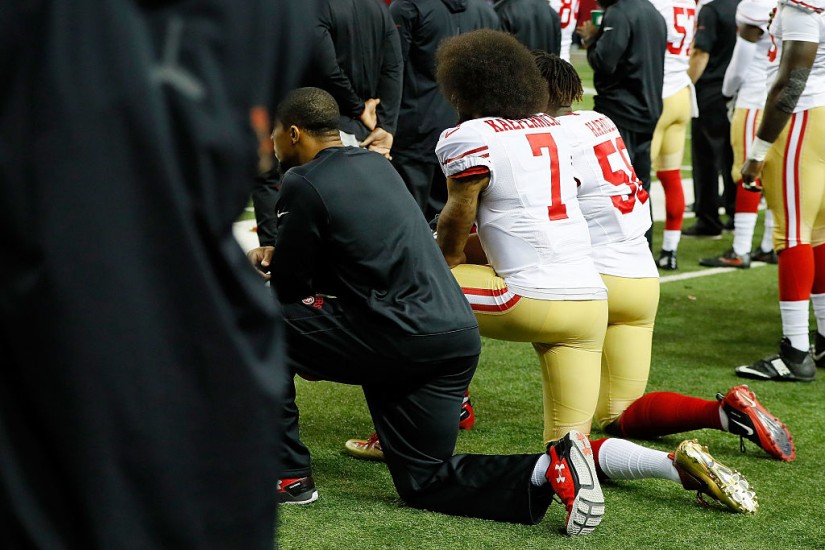But why was Kaepernick the first? He may have what sociologist Mark Granovetter calls a low social threshold—the willingness to go it alone, to forgo the security and comfort of public approval to endure scorn and worse. Others may have shared Kaepernick’s beliefs, but they could not become, like him, the tip of the spear.
Many have asked, “Why protest during the national anthem? Can’t they do it another way?” Such questions are as old as black protests themselves. And they’ve come not just from the activists’ opponents; even their allies have sought to set the boundaries of black expression. The famed fugitive slave-turned-abolitionist Frederick Douglass resented that white antislavery crusaders urged him to merely narrative the facts of his life while they handled the philosophy of the movement. Martin Luther King, Jr. was likewise reproached by sympathetic white ministers who, though never having felt the sting of segregation themselves, paternalistically told him that his demonstrations in Birmingham were ill-timed and counterproductive. For so much of American history, the attributes of freedom—and especially the ability to move and speak as one pleased—were deemed criminal activities for black folk. Those legal disabilities have been removed, but the attitudes that created and sustained them for centuries were never fully extinguished.
Gazing over the span of American history, one would be hard-pressed to find an example of black protest that most white people found acceptable at the time. The one exception may be the most dramatic and thus most ironic instance: During the Civil War, the U.S. armed nearly 200,000 African Americans, making them soldiers tasked with uprooting slavery and crushing the slaveholders’ rebellion. These black men in blue were activists literally fighting on the grandest stage. But the crisis passed, and 150 years later, merely wearing a hoodie to mourn Trayvon Martin, donning an “I Can’t Breathe” t-shirt to honor Eric Garner, and kneeling in silence during the anthem can spark outrage.
That outrage arises for understandable reasons. Protests are designed, not to create tension, but to bring to the surface, where it can be addressed constructively, tension that already exists. Kneeling is pacific, not impotent.
Kaepernick surely knew he would pay the price for taking a knee. It’s not just that he has been effectively blacklisted from football—no other quarterback of his caliber has gone unsigned for so long in NFL history. It’s that he would be villainized with a kind of ferocity reserved for black men who didn’t know their place. That’s the cross he bears so that the gap may be closed.
